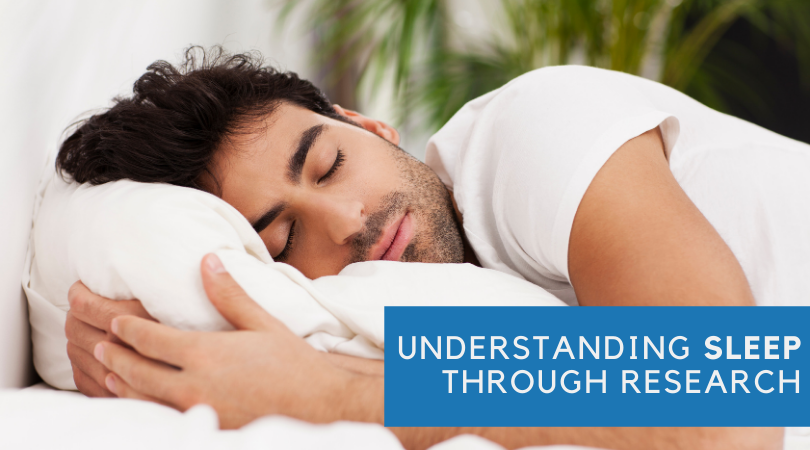Mice Studies Help Researchers Understand the Role of Sleep
Posted on
We know sleep is important: it helps us rest and recharge, and not getting enough can cause all kinds of problems, from depression and difficulty concentrating to an increased risk of chronic disease. Recent research with mice has shed some light on the importance of lights-out.
 Fear, Memory and Sleep
Fear, Memory and Sleep
At the University of Michigan, researchers have been studying mice to learn how memories associated with a specific sensory event are formed and stored in the brain. Specifically, they are studying sleep’s role in transforming a particular visual stimulus into a fearful memory. They found that while the body may be resting during sleep, the brain is hard at work, with groups of neurons remaining active to permanently associate a learned encounter with a memory, essentially “tattooing” memories onto the brain.
Previous research had already shown that regions of the brain that are highly active during intensive learning tend to also be active during subsequent sleep, but scientists were not sure whether sleep was an essential part of the memory formation. Did the memory need to be “reactivated” during sleep in order to be fully stored? Does it have to be a specific stage of sleep or set of neurons?
Researchers at the University of Michigan’s Department of Molecular, Cellular and Developmental Biology set out to find answers to those questions. The team created a visual memory test for mice by showing a group of mice a neutral image, then, using genetic tagging to identify the neurons activated by the image, associated the image with a foot shock.
The researchers found that mice that were allowed to sleep after the image/foot shock exposure learned to fear the image, while mice that had their sleep disrupted did not develop fear of the specific image, but instead showed general fear of every visual stimulus—they knew they were afraid, but they weren’t sure what they were afraid of.
The test showed that sleep is an essential part of the formation of fear associated with visual stimuli, which could lead to better understanding and new treatment for human conditions including generalized anxiety and post-traumatic stress disorder.
Sleep and Addiction
Why do people become addicted? There’s no single answer, but researchers have discovered that sleep deprivation may play a role.
According to a new mouse study, a lack of sleep can increase the rewarding properties of cocaine, leading sleep-deprived subjects to seek the sensory reward it provides.
The connection is related to the peptide orexin, which influences motivated and addictive behaviors. During sleep deprivation, orexin activity increases, causing subjects to be more attracted to rewards. When orexin receptors are blocked, reward-seeking decreases.
The discovery could lead to a new treatment for drug dependency in humans by manipulating the orexin system to reduce drug-seeking behavior.
How Melatonin Works to Promote Sleep
Melatonin supplements have long been touted as a natural way to encourage sleep, but the mechanism by which it did so was unclear. Now scientists may have found the answer, thanks to worms.
Melatonin is a hormone produced by the pineal gland when the body is in darkness. The human brain has two melatonin receptors, called MT1 and MT2, but until now scientists were unsure exactly what happens when melatonin binds with a receptor. Researchers at the University of Connecticut Health School of Medicine have pinpointed the process by studying C. elegans worms, which actually sleep much like humans do.
When melatonin fits into the MT1 receptor in the worm's brain, they found, it opens a potassium channel called the BK channel. When opened, the BK channel limits the release of neurotransmitters that can contribute to wakefulness.
The team plans to test the findings in mice next, which could eventually lead to a better understanding of how melatonin works, and even new treatments for sleep disorders and other conditions related to the BK channel, including epilepsy and hypertension.
Sleep Apnea and the Gut
Researchers at the University of Missouri have successfully changed the sleep patterns of mice by altering their gut bacteria. The approach could have implications for sleep apnea, which affects an estimated 900 million people worldwide and can cause cardiovascular disease, metabolic dysfunction, cognition, and memory retention.
There is a surprising crossover between sleep and gut problems—according to the author of the MU study, about one-third of patients with sleep disorders also have a GI disorder, and half of those with GI disorders also have sleep problems.
By altering some gut bacteria in mice, researchers were able to influence their sleep patterns and symptoms of obstructive sleep apnea, which could lead to methods of preventing obstructive sleep apnea and other health issues with changes to the diet.
The MU team isn’t the only one looking at the connection between sleep and the gut microbiome. Food giant Unilever, which owns brands including Hellman’s, Lipton, Ben & Jerry’s and dozens more, has partnered with Microba Life Sciences, an Australian biotechnology company, to research the connection between gut and sleep quality.
To paraphrase a children’s book, everybody sleeps. Understanding exactly what happens when we sleep, and what a lack of sleep does to the body and the brain, could unlock significant new treatments for a wide range of conditions.